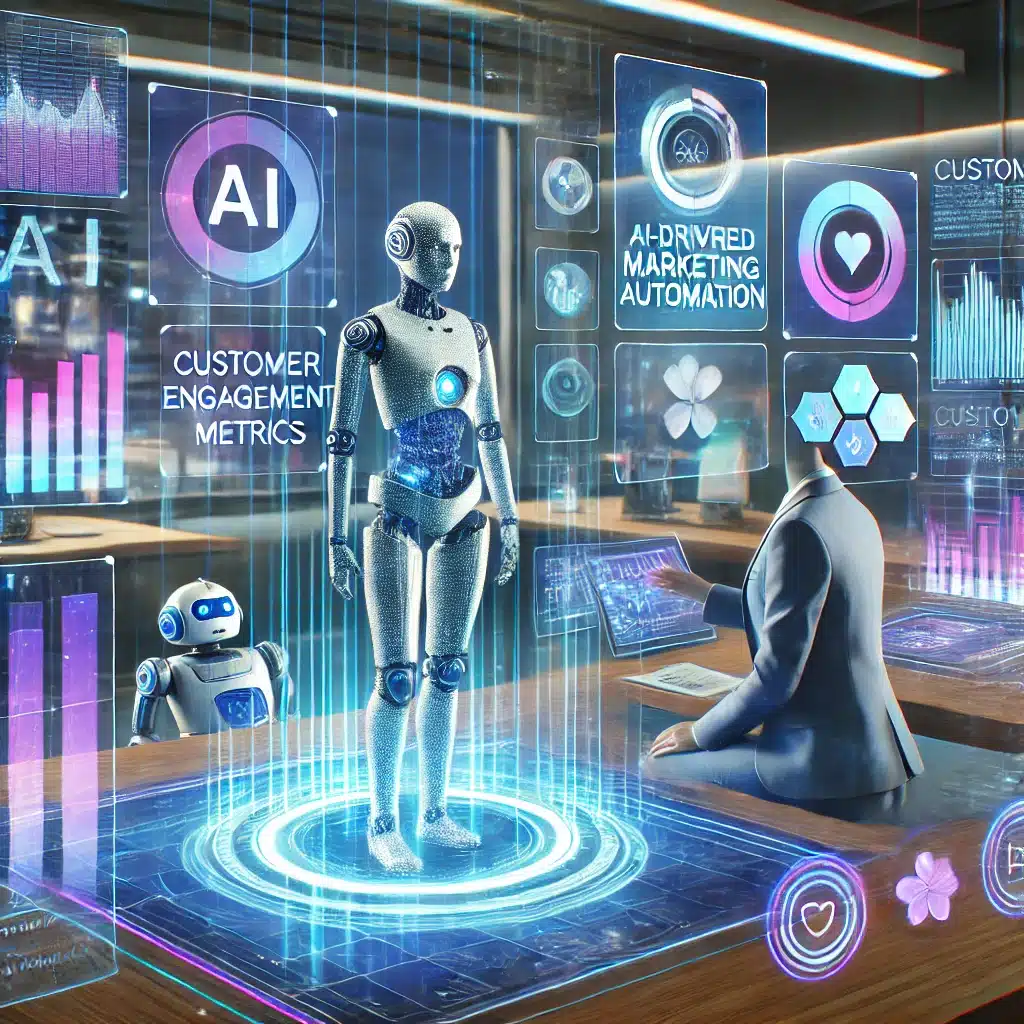Introduction
Leveraging AI enables businesses to analyze vast datasets, offering actionable insights to provide highly personalized interactions across touchpoints like websites, social media, emails, and support channels. This article explores how AI enhances customer service personalization, its impact on customer satisfaction and loyalty, and the challenges businesses must navigate to harness its full potential.
How Leveraging AI Enables Personalization
AI has revolutionized personalization by processing and analyzing large amounts of customer data with unprecedented speed and accuracy. This capability allows businesses to craft tailored experiences that resonate with individual preferences and behaviors.
1. Creating Detailed Customer Profiles
AI uses data from multiple sources, including:
- Purchase history
- Browsing behavior
- Social media interactions
- Support queries
These inputs help AI generate comprehensive customer profiles that include past preferences, buying patterns, and predicted future needs. With these insights, businesses can offer tailored services such as:
- Personalized product recommendations
- Targeted promotional offers
- Customized email content
For example, an outdoor gear enthusiast might receive recommendations for camping equipment, exclusive discounts on hiking gear, or curated articles on adventure destinations. By going beyond basic demographic targeting, AI fosters deeper connections between the brand and its customers.
2. Improving Customer Segmentation
AI excels in customer segmentation by identifying patterns and grouping customers into highly specific categories. Businesses can target these segments with offers and messaging that align perfectly with their interests and pain points, improving conversion rates and satisfaction.
Real-Time Personalization with Leveraging AI
One of the most transformative aspects of AI is its ability to personalize interactions in real time. By analyzing customer behavior as it happens, AI can adjust its responses and recommendations instantly.
1. Dynamic Website Interactions
AI-powered personalization ensures that websites respond dynamically to customer actions. Examples include:
- Pop-up chats: Triggered by a customer repeatedly viewing a specific product, offering additional details or discounts to close the sale.
- Customized homepages: Displaying recommended products based on browsing history or previous purchases.
2. Proactive Engagement on Social Media
AI sentiment analysis monitors social media posts for mentions of the brand or related keywords. If a customer expresses dissatisfaction, AI can proactively flag the issue, allowing support teams to offer assistance or resolve concerns before they escalate. Conversely, positive sentiments can trigger personalized thank-you messages or reward offers.
3. Real-Time Recommendations
During live customer interactions, AI tools can assist agents by suggesting responses or upsell opportunities based on real-time data. This ensures that agents can focus on building rapport while delivering relevant solutions.

The Impact on Customer Satisfaction and Loyalty
Personalized customer service powered by AI drives higher satisfaction levels and cultivates long-term loyalty.
1. Building Trust Through Understanding
When customers feel that a business understands their unique needs, they are more likely to develop a strong emotional connection with the brand. AI fosters this trust by:
- Ensuring consistent personalization across channels.
- Anticipating needs and delivering proactive solutions.
For instance, AI can predict when a customer might need to reorder a consumable product and send a timely reminder, saving the customer time and effort.
2. Encouraging Repeat Business
Satisfied customers are more likely to return and recommend the brand to others. AI-powered personalization strengthens these relationships by providing:
- Tailored loyalty rewards.
- Exclusive early access to sales or new product launches.
3. Enhancing the Customer Journey
AI can identify friction points in the customer journey and suggest improvements. For example, if customers frequently abandon their carts after viewing shipping options, AI can recommend free shipping offers or simplify checkout processes.
Challenges and Considerations
Despite its benefits, implementing AI-driven personalization comes with challenges that businesses must address.
1. Data Privacy Concerns
Modern customers are increasingly conscious of how their data is collected and used. Businesses must ensure:
- Transparency: Communicating how data is used for personalization.
- Compliance: Adhering to data protection laws like GDPR and CCPA.
2. Avoiding Over-Automation
While AI can handle routine personalization, over-reliance on automation can make interactions feel impersonal. For complex or sensitive issues, human agents are essential to maintaining empathy and trust.
3. Balancing Personalization and Intrusion
Businesses must strike a balance between offering helpful personalization and avoiding practices that customers might perceive as intrusive. For instance, overly aggressive targeting can deter customers instead of engaging them.
Strategies for Implementing AI-Driven Personalization
To maximize the benefits of AI in customer service personalization, businesses should follow these best practices:
1. Integrating AI with CRM Systems
Seamless integration with existing CRM tools ensures that AI has access to accurate, real-time data for personalization.
2. Combining AI and Human Expertise
Empower customer service teams to use AI insights while retaining the flexibility to handle nuanced or sensitive issues.
3. Continuous Learning and Improvement
AI algorithms must be regularly updated and trained on new data to refine their accuracy and effectiveness.
4. Monitoring Performance Metrics
Track key performance indicators (KPIs) such as customer satisfaction scores, conversion rates, and retention metrics to measure the impact of personalization strategies.
Conclusion
Leveraging AI is revolutionizing customer service personalization, enabling businesses to deliver tailored experiences that build trust, satisfaction, and loyalty. By analyzing vast amounts of data, providing real-time insights, and anticipating customer needs, AI empowers businesses to stay competitive in an increasingly customer-focused market.
However, successful implementation requires a balanced approach. Businesses must ensure transparency in data usage, prioritize ethical practices, and combine AI automation with human empathy. As AI technology continues to evolve, its role in personalizing customer service will become even more significant, offering businesses new opportunities to connect with their customers on a deeper level.
For companies looking to thrive in this competitive landscape, leveraging AI for personalized customer service is no longer optional—it’s essential.
Frequently Asked Questions (FAQs)
1. How does AI enable personalized customer service?
AI analyzes data like purchase history, browsing behavior, and customer preferences to deliver tailored recommendations, targeted offers, and customized support.
2. What are the benefits of real-time personalization with AI?
Real-time personalization ensures dynamic interactions, such as offering discounts during product browsing or addressing customer concerns proactively, enhancing satisfaction and conversion rates.
3. How does AI improve customer loyalty?
By providing consistent and relevant experiences, AI builds trust and satisfaction, encouraging customers to return and recommend the brand.
4. What challenges come with implementing AI-driven personalization?
Challenges include data privacy concerns, potential over-automation, and the need to strike a balance between personalization and intrusion.
5. How can businesses combine AI with human customer service?
AI can handle routine tasks, while human agents address complex or sensitive issues. This collaboration ensures efficiency without losing the personal touch.



